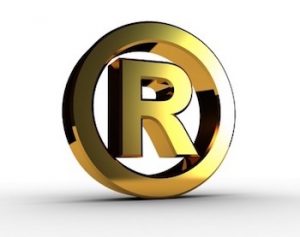“The USPTO was shocked to see so many erroneously listed goods and services signed and represented by licensed attorneys.”
 The United States Patent and Trademark Office (USPTO) Trademark Public Advisory Committee (TPAC), a small group of senior industry trademark professionals who provide guidance to USPTO leadership, kicked off the New Year with the first quarterly meeting held on January 25, 2019. The meeting covered a broad range of changes and updates to the Trademark Office’s policies, procedures, and operations. Members Bill Barber and Brian J. Winterfeldt provide an insider look at the top four issues of importance for every intellectual property (IP) owner. Bill Barber, Founding Member of Pirkey Barber PLLC, is serving in his second term on TPAC and is currently its Chair. Brian J. Winterfeldt, Founder and Principal of Winterfeldt IP Group, PLLC, is serving in his first term as a TPAC member.
The United States Patent and Trademark Office (USPTO) Trademark Public Advisory Committee (TPAC), a small group of senior industry trademark professionals who provide guidance to USPTO leadership, kicked off the New Year with the first quarterly meeting held on January 25, 2019. The meeting covered a broad range of changes and updates to the Trademark Office’s policies, procedures, and operations. Members Bill Barber and Brian J. Winterfeldt provide an insider look at the top four issues of importance for every intellectual property (IP) owner. Bill Barber, Founding Member of Pirkey Barber PLLC, is serving in his second term on TPAC and is currently its Chair. Brian J. Winterfeldt, Founder and Principal of Winterfeldt IP Group, PLLC, is serving in his first term as a TPAC member.
Status after the Government Shutdown
The USPTO held the quarterly TPAC meeting near the end of the longest government shutdown in United States history. Even with the uncertainty of temporary re-opening and a potential second shutdown, the Trademark Office remained fully funded and prepared to continue at full speed for five months through authorized use of operating reserve funds. The Office was, however, unable to access fees collected during the shutdown, as fees from trademark and patent filings are collected by the federal government, and then appropriated back to the Office. Despite not receiving those crucial fees, the Office was prepared to operate as normally as possible, including moving forward with new initiatives and hiring. In addition, the Trademark Office was prepared to publish notices regarding new developments soon after the rest of the government re-opened. These included requiring mandatory electronic filing, issuing a notice of proposed rulemaking requiring foreign-domiciled trademark applicants to be represented by U.S. counsel, and publishing a request for feedback on the externally-suggested changes to the Standard Protective Order used by the Trademark Trial and Appeal Board (TTAB or Board). The shutdown did, however, delay the Office’s ability to project annual revenue and volume of trademark applications. Most importantly, the Office’s foresight of a lengthy shutdown allowed trademark owners to access and process their information in a timely manner, and the Office continued to examine applications, issue Office Actions, and review applicant responses during the shutdown. Even so, the Office is still considering further refining their ability to maintain seamless operations for an extended time in the event of another shutdown or inability to access USPTO user fees collected from applicants and registrants.
Cleaning House
The Office continues to explore best practices to streamline efforts for trademark applicants to address blocking registrations known as clutter on the register via pilot programs. The TTAB is running a pilot program to expedite non-use and abandonment claims in cancellations. The majority of a small sampling of cases considered as candidates for inclusion in the pilot have concluded in default, calling the utility of the program into question. The Board noted that although plaintiffs desire expedited proceedings, the proceedings are often halted by the plaintiffs’ eventual desire for discovery. The Board will continue the pilot program through 2019 and collect data on candidate cases to see how to best streamline proceedings.
The Office is also furthering the streamlining process by auditing Section 8 and 71 use declarations for registered marks. Registered marks with at least one class with four or more c goods or services, or at least two classes with two or more goods or services, are randomly selected for Office actions. If audited goods or services are deleted, the Office will issue a second Office action. The second Office action requests proof-of-use on all remaining goods and services that lack acceptable proof of use. So far, almost half of respondents are deleting at least some goods and services, and a vast majority of those deleting goods and services are represented by legal counsel. The Office approached this audit believing old, over-cited, or unused marks would be cleared from the register. The Office was shocked to see so many erroneously listed goods and services in declarations signed by and/or filed by licensed attorneys. Attorneys should ensure that applications and use declarations are well-represented in front of the Office, pursuant to the Office’s practices and procedures.
Changes at TTAB
2019 is shaping up to be a very busy year for the TTAB. Following the significant increases in new trademark application filings over the past few years, the number of appeals filed with the Board is likewise trending upward to the tune of 7.5% in the first quarter of 2019. The number of oppositions and cancellations has remained flat so far as compared to last year, but could continue easily resume the increases in trial cases that characterized the three prior fiscal years.
The Board is also considering suggested changes to its Standard Protective Order (SPO), most notably a suggestion that in-house counsel should presumptively be given access to the other party’s confidential information designated as “attorneys eyes only.” Board practice under the current SPO says the opposite—in-house counsel do not get access to such information unless the other side agrees or the Board approves. However, some feel this presumption is inconsistent with Federal Circuit law and have suggested change. See U.S. Steel v. U.S., 730 F.2d 1465, 1468 (Fed. Cir. 1984) The Board reported on both sides of the debate and case law supporting each, and is seeking comments on this issue.
IT Updates
Like many companies in the private sector, the USTPO is striving (and sometimes struggling) to upgrade its IT systems to state of the art. For a number of years, the Office of the Chief Information Officer (OCIO) has been working with the Trademark Office to develop a cloud-based IT system for the Trademark Office. Although the Office successfully deployed and implemented some features within this system (such as the electronic Official Gazette and Acceptable Identification of Goods and Services Manual), the cornerstone piece of the new system has always been Trademarks Next Generation (TMNG), a comprehensive cloud-based tool for Examining Attorneys to conduct their examination of trademark applications and issue Office Actions. Unfortunately, the development of TMNG has run significantly over time and over budget and is still not complete. The Office hopes to fully implement TMNG by the end of 2019, but much still depends upon successful beta testing by examiners and strategic direction from the Director. Following implementation of TMNG, the Office hopes to develop new IT capabilities for external users and the TTAB. While the development of new IT systems is going on, the Office must balance and invest resources to maintain the stability and integrity of its legacy systems.
The Trademark Office is also planning to require all trademark-related documents (with very limited exceptions) to be filed electronically. Currently, almost 100% of new trademark applications are filed electronically. However, only about 88% of applications complete their lives in an all-electronic world, as applicants sometimes later file office action responses or other documents on paper, needlessly costing the Office and the entire trademark system excessive resources to process these paper filings. The Office published a proposed rule to change this practice last May and expects to finalize and implement the mandatory electronic filing rule soon.
We welcome you to attend (in person or by webcast) the next public TPAC meeting on April 26, 2019. Please contact Bill Barber [email protected] at or Brian Winterfeldt at [email protected] for more information or questions.
This article was updated on March 22, 2019.

![[IPWatchdog Logo]](https://ipwatchdog.com/wp-content/themes/IPWatchdog%20-%202023/assets/images/temp/logo-small@2x.png)


![[Advertisement]](https://ipwatchdog.com/wp-content/uploads/2024/04/Patent-Litigation-Masters-2024-sidebar-early-bird-ends-Apr-21-last-chance-700x500-1.jpg)

![[Advertisement]](https://ipwatchdog.com/wp-content/uploads/2021/12/WEBINAR-336-x-280-px.png)
![[Advertisement]](https://ipwatchdog.com/wp-content/uploads/2021/12/2021-Patent-Practice-on-Demand-recorded-Feb-2021-336-x-280.jpg)
![[Advertisement]](https://ipwatchdog.com/wp-content/uploads/2021/12/Ad-4-The-Invent-Patent-System™.png)







Join the Discussion
No comments yet.